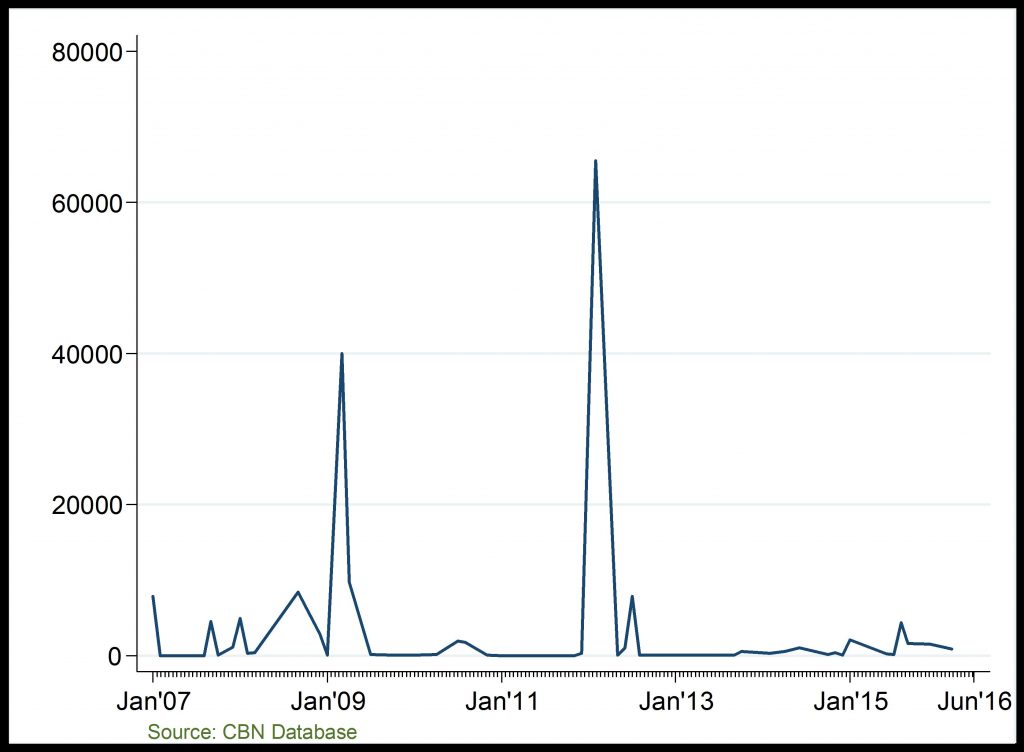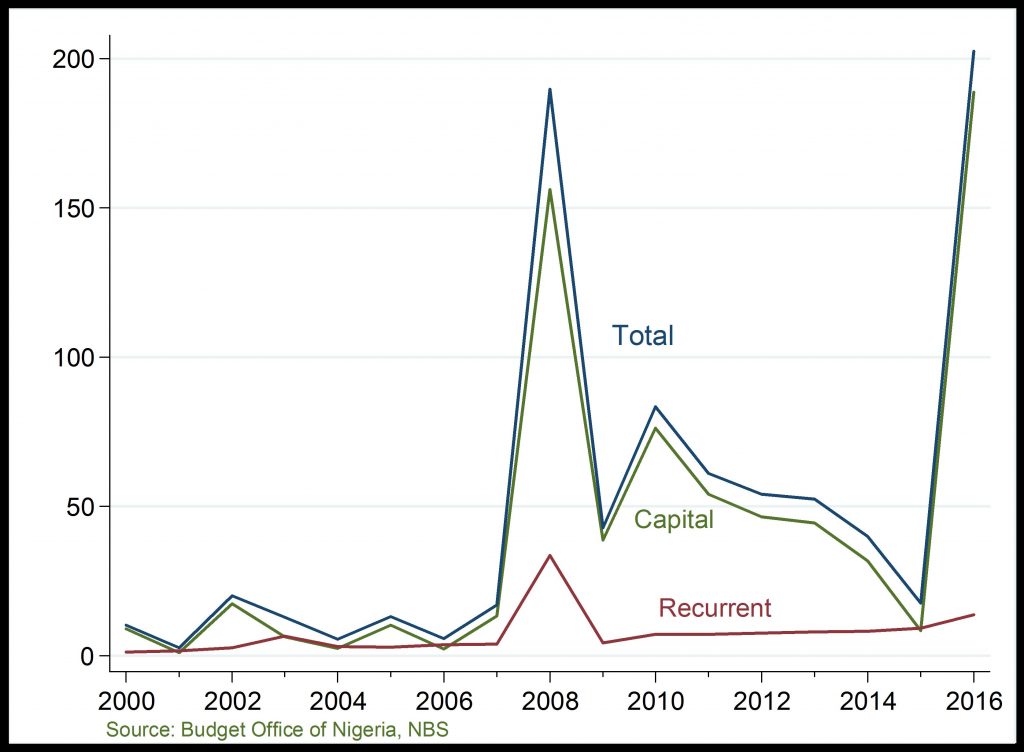Capital Importation And Budgetary Allocation (Transport Sector)
Capital Importation (US$ Thousand)
Low investment

Budgetary Allocation (Billion )
Massive capital expenditure in Transport budgeted for 2016

Capital Importation: Since the dramatic decline in 2013, private and government sector investments in the sector have remained low in 2016.
Budgetary Allocation: Budgetary allocations to the transport sector have continued to fall since 2010. However, the budgetary allocations for capital expenditure rose exceedingly in 2016 reflecting the Presidents commitment to improve infrastructures, particularly in transport sector.
Related
Capital Importation: Overall capital imported into the manufacturing sector fell deeply in 2015 and has remained low in 2016H1 on the account of present FOREX issues affecting businesses in the sector
Net Foreign Exchange Flows through the Nigerian Economy: The recent fall in foreign exchange earnings reflects the decline in both oil sector receipts from CBN, and non-oil sector inflows from autonom
Capital Importation: Foreign investment into the agricultural sector was relatively flat between 2007 and 2012 but gained unusual momentum in September 2015. The spike in 2015 is likely driven by the
Crude Oil Price: Crude oil price attained a historical low of $30.7 in January 2016 largely due to excess global oil supply.
Crude Oil Production and Export: Oil production has continued to fall in


